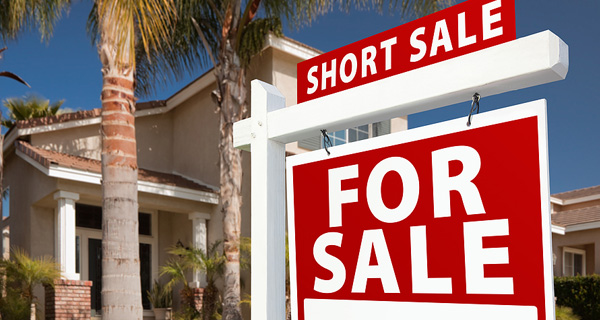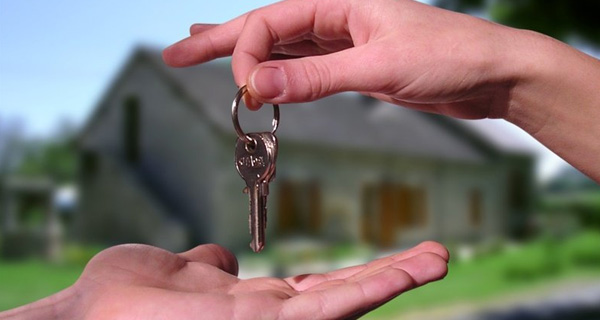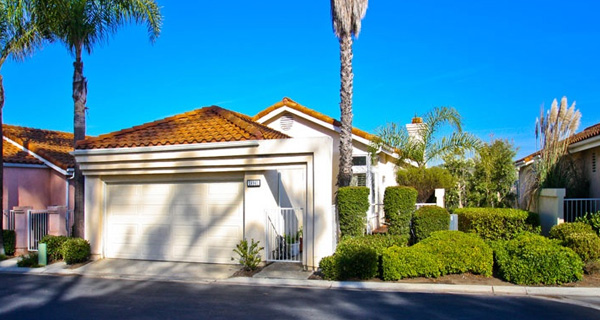Our mission is to help distressed homeowners avoid foreclosure.
We promise to match you with an expert in less than 60 minutes.
Contact us for a NO OBLIGATION short sale Evaluation
Call (714) 855-9292 or email us at arkteams18@gmail.com
1. What is a Short Sale?
A short sale is the process by which a homeowner can sell a house for less money than he actually owes on the mortgage(s). This is done by the seller and the listing agent providing proper documentation to the mortgage lender(s) to convince them to reduce the mortgage balance to allow the sale. The mortgage lender (or bank) actually takes a loss (or write-off) on the mortgage because the value of the home has fallen below the mortgage balance AND the homeowner is in a poor financial condition that will not allow him to continue to pay on time.
If the bank approves the discount on the mortgage, the home can be sold for a lower price without the seller having to come up with cash to cover the shortfall, and the mortgage is satisfied and the foreclosure process stops.
2. What type of situation is the short sale best for?
Most short sales are done on properties in foreclosure. This means the homeowner is at least 3 payments behind and the foreclosure suit has been filed by one of the mortgage lenders. Recently, more mortgages that are simply behind or “in default” are considered short sale candidates without actually being in foreclosure.
Also, the homeowner typically has negative equity or no equity in the home. In other words, the total balance owed on the mortgages is equal or greater than the price at which the house can be sold. This situation is growing increasingly common due to the easy availability of 100% mortgages (no money down) as well as the recent decline in prices. This is particularly prevalent in the Southern California area, which has a large glut of homes for sale and where prices have declined 10%-30% in the past year.
In addition, the homeowner must have some type of financial hardship that is preventing him from paying the mortgage. This is commonly job loss, medical bills, disability, or some other hardship.
A typical situation for a short sale is this:
-Homeowner purchases a home for $600,000 in 2004 with 5% down payment, the mortgage balance is $570,000.
– By 2005, the home’s value has increased and interest rates have declined so the homeowner refinances to pull cash out. Home value $660,000, new mortgage $660,000.
– In 2006, homeowner gets laid off and continues to make payments from savings, hoping to land a new job soon.
– By 2007, savings are gone and still no job. Homeowner begins to miss payments and decides to sell the home for $660,000.
-As the months pass, the home has not sold because values have dropped back to $600,000 and the foreclosure process has begun. The Real Estate Agent presses to lower the selling price to entice a buyer, however that would require the homeowner to come up with cash at closing to cover the mortgage shortfall.
-Homeowner is stuck in the house and the foreclosure is proceeding.
3. How does a homeowner benefit from a short sale?
First and foremost, it relieves the stress of being in foreclosure and being hounded by the mortgage lender; and it allows homeowners to get rid of their big mortgage payment and move on with their lives. A short sale allows you to stop the foreclosure and get a fresh start. In our experience, this is the primary benefit to homeowners. They are tremendously thankful to just relieve the burden that their home and mortgage have become.
A short sale also prevents additional damage to your credit. Having some late payments and a foreclosure filed has already done damage to your credit. However, a completed foreclosure will do much more damage and lower your credit score tremendously. Obviously, if you have to declare bankruptcy, that is a huge black mark on your credit. A short sale results in the mortgage actually being paid off, which reflects positively compared to a foreclosure.
4. Why would a bank or mortgage lender want to do a short sale?
A common saying is that banks are in the business of lending money and do not want to own real estate. This is slightly misleading but is essentially true. When a bank takes a property back via foreclosure, it is a long and expensive process and often results in holding the property in their inventory as a non-performing asset. Banks have a limit to the amount of non-performing assets they want to hold. Once this limit is exceeded, they have strong incentive to get rid of the properties at discount prices.
For a lender, doing a short sale avoids many of the costs associated with the foreclosure process. Attorney fees, delays from borrower bankruptcy, damage to the property, costs associated with resale, property tax, insurance, etc. all must be paid by the bank during a foreclosure. In a short sale scenario, the lender is able to cut its losses by getting rid of the property faster.
5. Will a short sale “save my house”?
In the sense that you will be able to continue to live in the house, unfortunately, the honest answer is no. A short sale is only done involving a legitimate sale of the home from the foreclosed owner to another unrelated party.
Many of the cards and letters you have gotten have probably promised to save your house, however, this is very seldom possible. We would recommend that you NEVER sign away your deed to someone who promises to “save your house” from foreclosure. It is probably a scam.
6.Will a short sale “save my credit”?
The short answer is yes and no, a short sale can save you from the worst credit disasters.
By defaulting on mortgage payments and having a foreclosure filed against your property, you have already done damage to your credit. Your credit score has declined and those negatives will stay on your credit report for some time. However, it will get much worse if you allow the foreclosure to continue and do not try to short sale the property.
Once a foreclosed property is sold at auction, your credit score is further reduced and when the foreclosure is completed via eviction and repossession of the home, your credit will be even further damaged. If you can complete the short sale BEFORE either of these takes place, then you can prevent that further damage to your credit. In addition, when the short sale is completed, it shows up on your credit as a “Paid” mortgage and a canceled foreclosure, which shows future creditors that you did take care of your obligations.
If your situation eventually winds up in bankruptcy, then that is the worst item that could appear on your credit report and it will remain there for years and cause numerous difficulties in getting future credit. A short sale can help avoid this, but the key is not to wait.
7. I am in foreclosure, is a short sale for me? Do I qualify for a short sale?
Each situation is different and must be evaluated individually. If you believe you fit the basic criteria of:
-
Property in foreclosure or default
-
Personal financial hardship
-
Little or no equity in the property
-
At least 60 days until eviction date
8. I am NOT in foreclosure and I have missed NO PAYMENTS, can a short sale work for me or do I qualify for a short sale?
It is difficult to do a short sale if foreclosure has not been filed but it is possible if a couple of payments have been missed and there is a good hardship story. The lender must be convinced that they will NOT BE REPAID without the short sale.
If you are not in foreclosure and you have not missed any payments, a short sale is probably not likely, but it is possible. The key is to have a legitimate financial hardship that will keep you from making the payments. A short sale is not just an easy way out of a bad investment. If you are working and your house has just lost some value, that is just unfortunately a bad investment and you are responsible to pay the shortfall.
Short sales are when lenders agree to discount a mortgage for someone who has had legitimate hardships and who has little chance of paying the amount owed. You may be hearing stories that mortgage companies are hurting and they don’t want these houses and are giving big discounts away. These stories are mostly urban myths and are not true. In fact, the opposite is happening. Since profits are down, lenders are getting tougher when negotiating prices. They are not letting properties go cheaply and without very good reason. They will try ANYTHING to get you to repay the mortgage in full. A short sale is only a last resort, but we do know how to get lenders to agree to a short sale.
9. What if my mortgage is an FHA…or HUD…or VA mortgage?
Short sales can still be done on all these types of mortgages though each one has different criteria. Just let us know what kind of mortgage you have and we will take that into account.
10. What other options might I have at this point?
When faced with a foreclosure, some things you may be able to do are:
-
1.Sell your home through the normal channels
-
2.Bring your mortgage current by making the missed payments and paying the penalties
-
3.Refinance your mortgage with another lender
-
4.File for bankruptcy
If you can do any of the first 3, then you probably should! Those are usually the best solutions for a homeowner in foreclosure. However, if your situation is such that your house cannot be sold for the amount owed, and you have no money to bring the payments current, and you have no equity to qualify for a refinance, then you should consider a short sale before considering option #4.
Again, we encourage you to educate yourself as much as possible about your situation and seek advice from any attorney or CPA you have access to about your choices. We do caution you against paying for the advice of so-called “foreclosure work-out specialists” or other such advisers unless it is by personal recommendation.
11. What is “Financial Hardship” and why is it so important?
“Financial Hardship” is a critical part of the short sale equation. No matter what you hear about banks “not in the business of owning real estate”, etc., they DO NOT give homeowners a break easily. They require GOOD REASON to give a discount for a short sale. They have entire departments called “Loss Mitigation”, which means their entire job is to reduce the loss the bank takes on a bad loan. Giving big discounts to sellers increases the loss on a bad loan, so they don’t take it lightly.
The ONLY reason a lender will agree to a short sale is if they determine that the short sale will net the more money that proceeding with the foreclosure. Understanding the home owner’s financial hardship is a big part of the lender estimating whether they will be paid in full for the mortgage.
IF THERE IS NOT A LEGITIMATE FINANCIAL HARDSHIP, A LENDER WILL NOT SHORT SALE EVEN IF THE HOME IS WORTH LESS THAN THE MORTGAGE BALANCE. Quite simply, the lender will make the borrower pay the shortfall if there is no hardship.
Many homeowners try to use a short sale as a “get out of jail free” card to dump their poor investment. Lenders will not allow this and it is a waste of time to try. If you are employed and have some assets, but you have simply lost value on your home and want to sell, YOU PROBABLY CANNOT SHORT SALE. If you are current on your mortgage, IT IS VERY DIFFICULT TO SHORT SALE. Lenders need to see that you simply cannot pay them back before they will short sale.
12.Who owns the house after a short sale?
The purchaser of the house is the owner after a short sale just as in a normal sales transaction. The mortgage lender is paid off and the previous homeowner moves to a different home.
13. What do I do about my back property taxes when I do a short sale?
Just as in a normal home sale, property taxes are the responsibility of the homeowner until the date the sale is closed. Then they become the responsibility of the buyer or investor
If your property taxes have not been paid this will affect the negotiations between the buyer and the bank, so you must inform us or any buyer of those taxes owed.
14. Can I short sale my own house
No, this would be illegal. A short sale must be an “arms length” transaction. You cannot short sale your own house nor can close members of your family or friends do one for you either.
In a short sale, the lender is agreeing to discount the mortgage amount due to legitimate hardships; but not so that the homeowner can make a profit. No money from a short sale transaction can be paid to the homeowner (seller). Lenders will not approve any short sale in which they suspect the foreclosed homeowner will profit.
15. Can’t I just go down to my branch or mortgage broker and talk to them about reducing my mortgage?
Unfortunately, things don’t work that way anymore in the banking business. Once you obtain a mortgage, it typically gets bundled with other mortgages and sold to other banks or investors. Oftentimes, the company to which you make your payments is not even the bank who holds your mortgage; they are simply paid to “service” the loan.
Also, once you mortgage lender begins the foreclosure process, the file is turned over to a loss mitigation company so the “lending” departments or the branch no longer have anything to do with the loan.
All negotiations regarding the short sale are done between the Listing Agent and whatever loss mitigation or asset management company works for the lender.
16. Do you handle houses in my area?
Our focus is in Orange County Cities. However, we will consider listings in other areas of Southern California. In addition, we work with other short sale specialists in the region and can often refer your case to another Short Sale Realtor if we cannot help you.
We typically need to have some knowledge of the local real estate market you are in to be able to make a convincing case to a lender to short sale your mortgage
17. Do you handle duplexes, apartment buildings, condos or commercial property?
We do handle all residential properties in all price ranges, but currently we do not handle commercial properties.
18. My house is already listed for sale on the MLS but isn’t selling; can I do a short sale?
Yes, you can and it is relatively common. Some lenders even require that a house be listed for sale before approving a short sale in order to show that a discount is necessary.
As described in an earlier answer, a typical short sale situation is one like this:
-
Homeowner purchases a home for $600,000 in 2004 with 5% down payment.
-
In 2005, value has increased and interest rates have declined so the homeowner refinances to pull cash out. Home value $660,000, new mortgage $660,000.
-
In 2006, homeowner gets laid off and continues to make payments from savings.
-
By 2007, savings are gone and still no job. Homeowner begins to miss payments and decides to sell home for the former appraised value of $660,000.
-
As the months pass, the home is not sold because values have fallen to $600,000 and after 3 missed payments, the foreclosure process has begun. The Real Estate Agent presses the homeowner to lower the selling price, but that would require the homeowner to come up with cash at closing to cover the mortgage shortfall.
-
Homeowner is stuck in the house. He can’t sell and can’t catch up with the payments, and the foreclosure is proceeding toward eviction.
19.My house is really nice, why is the short sale offer so low?
Sellers often have an emotional attachment to their home and often feel a short sale offer is too low. It is important to remember a few things. First, the seller in a short sale can never receive any money in the transaction, therefore it should be of very little concern at what price the short sale is done. The only real exception is when the seller has tax liability concerns. Otherwise, the price should not matter to the seller.
The important factor in a short sale is whether the lender will accept the price. Lenders OFTEN accept prices for short sales that normal homeowners or Realtors are surprised at. Discounts of 30% are no longer uncommon. This happens for several reasons:
-
Sellers are often in denial about how bad the market really is for housing and therefore how far the value has declined.
-
Lenders don’t like the foreclosure process any more than homeowners do (especially in California). Lenders incur substantial costs during a foreclosure process that can last more than 12 months. They have attorney fees, filing fees, publication fees, lost interest on the money that is tied up, property taxes, insurance, maintenance costs as well as the potential for vandalism of the vacant home. This is all BEFORE having to try to sell the home as a bank owned REO and pay commissions to do that. A short sale is a way to avoid some or all of these costs. If a lender calculates his cost of eviction at $50,000 for a house, they will often take a $40,000 loss on a short sale instead and they will be better off.
-
Lenders are emotionless businesses. They simply look at the numbers and make a decision. If the numbers favor a short sale, they will accept even if it means taking a large loss. They do not want to wait, they want the deal done NOW. These numbers and factors are what a short sale investor is focused on.
In a poor housing market, most of these numbers have very little to do with how nice a home is.
20.Should I accept a short sale offer from an investor?
Obviously this is up to each individual, but we believe the only real reason to reject an offer is because you know that you will have a tax problem. Again, most sellers who have a short sale qualify as insolvent with the IRS and can therefore avoid taxes on the short sale if the deal is properly negotiated. Otherwise, neither you nor your Realtor should have a concern about the price.
Investors do not want to waste time with low ball offers either so you can be assured that if they place an offer, they have reason to believe it could be accepted. If you need to sell your home, the quickest and surest way to do so is through an experienced short sale investor.
21.My Real Estate Agent doesn’t know about or doesn’t recommend a short sale, what do I tell him/her?
If the foreclosure process has already been started, do not let anyone stall you or delay you from taking action! The biggest mistake for a homeowner in foreclosure to make is to do NOTHING. Before you know it, you will be left with no options and you will be evicted. You must deal with your situation ASAP, and if you agent does not want to look into all the options for fear of losing his commission, you should look for a new agent.
22.How much does it cost me for you to do a short sale on my house?
Nothing. The bank will pay all the real estate commissions and all your closing costs.
23.Is my house too cheap or too expensive to do a short sale?
Homes in any price range can be eligible for a short sale as long as the basic criteria are met.
-
Property in foreclosure or in default
-
Little or no equity in the property
-
Personal financial hardship
-
At Least 60+ days to a Foreclosure Auction
24. Are short sales guaranteed to work?
No. Even though short sales are increasing they are still fairly complex, as I have stated. All the criteria MUST be met for a bank to even consider a short sale. It is not easy to convince a bank that the market value of the home is lower than what they are owed. They do not like to take a loss on a loan.
Then the bank must be convinced to discount the mortgage enough to make it viable for a potential buyer.
In some cases, we do all the paperwork and wait several weeks only to be denied. Again, the homeowner continues to own and live in the house if he chooses.
If the lender does not approve the short sale, The ARK Teams has no rights at all to the property and no transaction occurs. The purchase agreement becomes void and the listing continues.
25. What if a bank doesn’t accept the short sale?
Again, if the bank doesn’t accept the short sale offer, there is no transaction and the home is still owned by the foreclosing homeowner and the foreclosure process continues.
26. How long does a short sale take, I need to get out now!
A short sale takes approximately 60 days to complete and sometimes longer. This is very important. This complicated process takes time so to have the option of a short sale, you must act soon. If you wait until 1 week before eviction, no one can help you do a short sale. It is simply impossible. DO NOT WAIT.
27. Why do I have to sign a Borrower’s Authorization?
In order to both determine if your lender will consider a short sale and then to actually negotiate the short sale, The ARK Team needs be able to speak to your lender about the mortgage. The lender will only speak to people you have authorized them to speak with.
By signing a Borrower’s Authorization, you give the lender permission to speak to The ARK Team about your loan. That is all it does, but it is necessary. An authorization must be filled out for each mortgage.
28. How does The ARK Team make money on a short sale?
We make a standard real estate sales commission that is paid by the lender only in the event of a successful short sale.
29. Do I have to move after I do a short sale?
Yes. After the short sale transaction, the new owner will own the house and the seller must move, just as in a normal sale.
30. I have heard that I could still owe taxes after a short sale, is this true?
Yes, this is true but it is not that simple. If this is a concern to you then you need to consult an attorney or CPA, but without trying to get too complicated, we can provide our experience with this problem.
When a lender “writes off” part of a loan, it has to account for where that money went. In the case of a short sale, it is determined that the amount goes to the foreclosed homeowner, since it is their personal debt that is forgiven so that the house can be sold. The bank can account for this in one of 2 ways.
Either the bank keeps the amount of the discount on the books as a bad debt and they can go through the courts to try to collect from you on the bad debt. Or the bank can issue a 1099C form to you for the amount forgiven and that amount can be considered “income” for you.
In our experience, having the bank issue the 1099C is better for the homeowner for a couple of reasons. (Again, please consult a CPA or tax adviser if you have questions) When you receive the 1099C, the control is in your hands as to how to treat the 1099C income on your return. When the bank keeps the debt, the choice is in their hands as to whether they come after you to collect.
Most importantly, even if you receive the 1099C and declare it as income, as you should do, there is a good chance you will owe very little tax if any at all. This is because there is an IRS rule regarding “Insolvency”, which essentially says if you are insolvent (more liabilities than assets) at the time of the short sale, then you don’t have to count the 1099C as income. There is an IRS form to fill out to show you are insolvent. See www.irs.gov
The bottom line is the typical people who are in a foreclosure or short sale situation have little income or assets, so the 1099C is usually not counted as income, or the tax rate you might pay is very low. Again, ask your tax person or you can call the IRS for free advice.
If you are concerned about owing a debt after the short sale, it is important to remember that if you do not use a short sale to satisfy your lender, then the foreclosure process will continue. If the lender takes back the house and has to sell it for less than you owe, YOU CAN STILL BE HELD LIABLE for the amount they lost. The bank can go after you in court to collect the deficiency. So whether you choose foreclosure or short sale, you still have the potential to owe a liability to the bank. Clearly a short sale is the better way to go considering all things.
So the short answer is that you can owe taxes both after a short sale or after a completed foreclosure; however, if a short sale is done properly, the tax can often be avoided in large part. Again, each situation is unique.
32. Will a short sale help or hurt my credit?
See above question, Will a short sale “save my credit”?
33. I am behind on my mortgage payments, but not yet in foreclosure. Can I do a short sale?
Yes and this is happening with much greater regularity. Sometimes, these are actually the most attractive short sales for an buyer/investor and a lender because a lender can avoid ALL the costs of foreclosure with a short sale before foreclosure is filed.
In these case, it is more important to have a very good “hardship” story to explain to the lender why you are unable to make the payments.
34. My house needs a lot of repair; can you still do a short sale?
Yes, though it can make the process more difficult because the price must be substantially lower. The key is to be able to show the bank’s appraiser all the work that needs to be done. Let us know if this is the case with your home.
35. Can you do a short sale on my house?
If you think a short sale may be appropriate for you, the first step is to Call at (714) 855-9292.
36. I have more than 10% equity in my house; can I still short sale to you?
Probably not. You are much better off seeking our services for a normal open market sale or a refinance.
37. My husband/wife/brother is also on the deed with me but doesn’t want to sell; can I still do a short sale?
No. ALL parties listed on the current deed or mortgage must sign the short sale purchase agreement. There are no exceptions to this.
38. I have other liens (i.e. mechanics, IRS, court judgments) on my house; can I still do a short sale?
Yes, but again, it gets much more complicated and will take longer. If this is the case on your home, be sure to COMPLETELY list all potential liens you have. Each lien holder will have to be negotiated with individually. A short sale in this circumstance will take longer than 60 days.
39. I am an heir to an estate that has a mortgage it (or I) can’t afford to pay. Can I do a short sale?
Yes, this is common. When you contact us, make sure to note the homeowner is deceased.
40. I have 2 or 3 mortgages on my house. Can I still do a short sale?
Yes, each mortgage or Line of Credit (HELOC) can be negotiated individually. It is important to know which mortgage filed the foreclosure or if more than one are in foreclosure, which filed first.
41. Is my house a good candidate for a short sale?
Please call us at (714) 855 – 9292 to discuss your options.
42.I have gotten dozens of cards and letters saying they can help me with my foreclosure, but they never do, how is this different?
There are many different types of people who work in the “distressed property” area. Some are legitimate, some are not. Many claim to be able to work miracles on your credit or save your house. Most will either charge high upfront fees or cannot really help you. Most will only “help you” if you have a large amount of equity in your home. They will use several techniques to get you to sell your house to them and take some of your equity. Try your best to avoid them.
43. I have already declared bankruptcy; can I still do a short sale?
Yes, but it is more difficult. If the property is currently involved in a bankruptcy, the lender is not the only one who has to approve a short sale.
The bankruptcy trustee will also have to approve it. This creates an additional layer of oversight and an additional party which wants to squeeze all it can out of the homeowner. It can still be done, but all conditions have to be perfect.
If you are considering bankruptcy as a way to stop the foreclosure, be sure to get good legal advice, since it is possible that a bankruptcy may not completely stop a foreclosure. Lenders often can get the bankruptcy set aside to continue to pursue a foreclosure.
(714) – 855 – 9292






